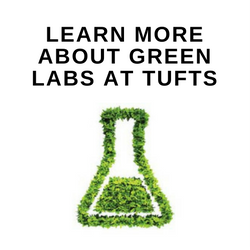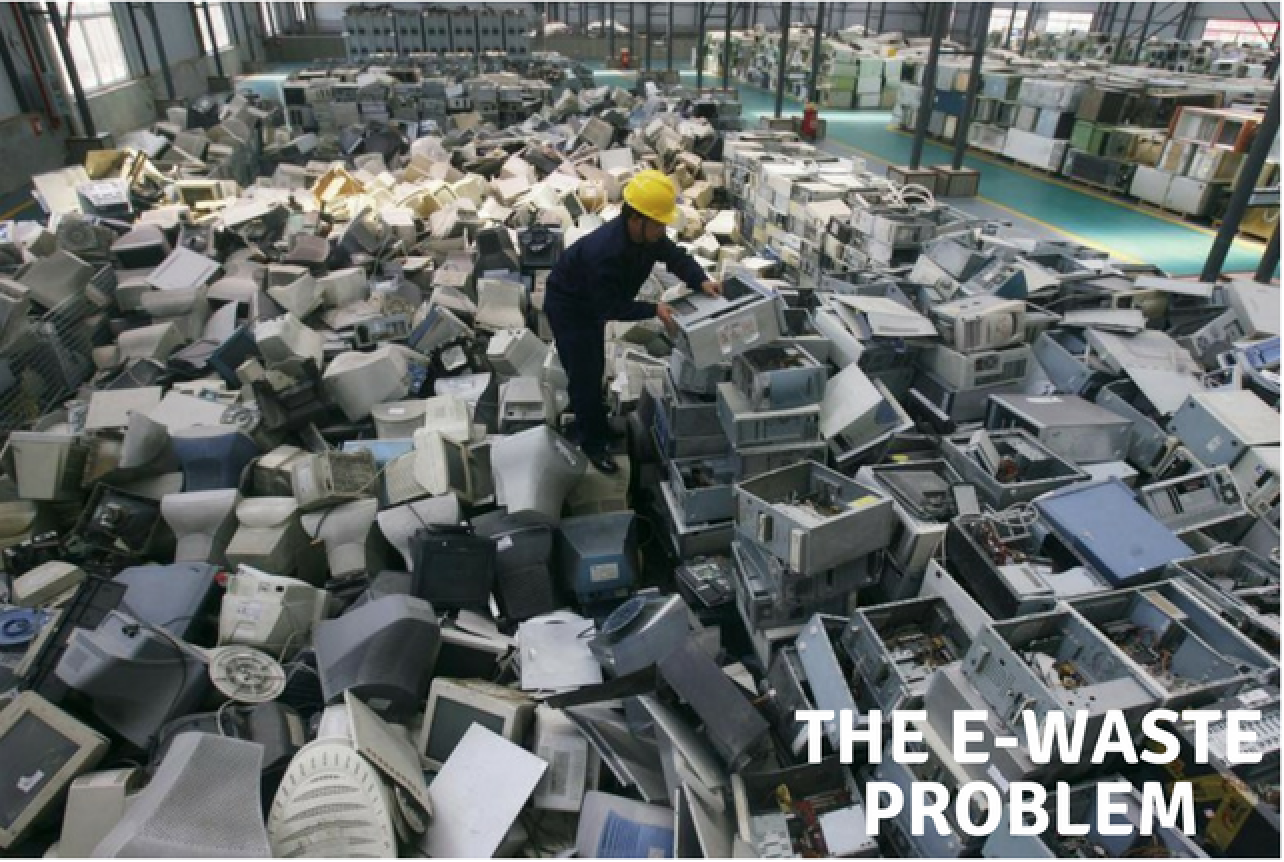
Labs are incubators of learning, innovation, and fostering the ideas for a better future, but labs also require large amounts of energy and resources. They require constant air circulation, energy-intensive equipment, and disposal of dangerous chemicals. Professor Kenny of the Tufts Chemistry Department has spent his career combining his two passions—sustainability, and chemistry. He has been a vital member of the Council for Sustainability of Campus Operations (sustainability council for short) and teaches an Environmental Studies core requirement, Chem 8: Environmental Chemistry, offered this coming spring semester.
This past summer, Professor Kenny and his Chemistry & Environmental Studies undergrad advisees Jonathan Ng and Patrick Milne conducted research in the prototype program Projects in Campus Sustainability, funded by the Council. These projects bring together faculty, students, and staff. Both Jonathan and Patrick’s projects focused on how to make the Pearson-Michael Chemistry complex a more sustainable lab space.
These projects grew out of a final paper written by Kirsten Hickey, an employee of the Chemistry Department, written for a class in campus sustainability taught by Professor Ann Rappaport. Hickey’s paper described a number of areas in which the department could save energy and money while reducing its carbon footprint. Kenny transformed the report into a set of focused sustainability projects for which a cost-benefit analysis would be carried out by his students, with guidance from relevant faculty and staff.
Jonathan researched how to reduce the number of solvents used in research. Solvents are used in virtually every chemistry experiment and their disposal is expensive and energy intensive. Jonathan found that one solvent that was purchased for $3.70 per liter then cost $3.35 per liter to dispose of, meaning the total cost of using and disposing of the solvent is nearly double the initial purchasing cost. The solvents then need to be disposed of safely, often requiring hundreds of miles of travel to be properly disposed of. This high cost, both finically and environmentally, can be reduced by investing in a state of the art flash chromatography instrument that reduces both the amount of time and the amount of solvent needed for purification. Currently, the Pearson-Michael labs use an older, inefficient filtration system that requires a large volume of solvent. Jonathan is proposing that Tufts invest in the Reveleris® Prep System; the proposed new machine saves both time and solvent by optimizing the process on each trial using sophisticated software and an ultra-sensitive detector. This solvent saving machine would pay for itself in just two years while reducing the carbon footprint of Tufts labs.
Fume hoods are commonplace in chemistry labs, but do they need to be? That was the question driving Patrick Milne’s research \\project this summer. Fume hoods run constantly to remove any hazardous gasses produced by experiments. One of these hoods uses as much energy as three and a half average American homes, and there are 93 of them in Pearson-Michael. Regulating the air quality and protecting students from dangerous substances is the top priority of any lab, but Patrick determined that there was little or no need for General Chemistry 1 and 2 courses to do experiments that produce dangerous fumes. Altering the curriculum to do experiments that teach the same concepts but without the use of dangerous fumes is safer and more energy efficient. Most who take general chemistry continue on to take upper-level chemistry courses, so there is no need for these students to handle dangerous chemicals. Turning off or removing the fume hoods in the general chemistry labs would reduce Tufts energy consumption. Patrick also suggested that when fumes do need to be removed from an experiment, an extraction arm can be used. These extraction arms are more precise than fume hoods and filter the air more energy efficient than a fume hood.

Professor Kenny with Jonathan Ng and Patrick Milne
Sustainable Chemistry Tips from Professor Kenny, Patrick, and Jonathan
Sustainable practices have only been integrated into teaching in the last few decades. Environmental awareness and thinking are increasing in labs, but as Professor Kenny explained, “unless special efforts are made to challenge ‘business as usual,’ people usually stick with what they learned.” Making students conscience of sustainable lab practices is the most important way to improve the sustainability of labs, both for now and for the future. Professor Kenny wishes for more research to be done on buildings and labs all over campus on ways to reduce waste and improve sustainability. Patrick and Jonathan hope to continue research and working on combining their passions for sustainability and chemistry in their future. Professor Kenny asks that “if anyone has ideas for projects that require collaboration between faculty, staff, and students come and see me and the sustainability council.” If you have an idea that could make Tufts more sustainable, don’t keep it to yourself; contact the Office of Sustainability or the Campus Sustainability Council with your ideas and help us create a more sustainable Tufts!








Find Us On Social Media!